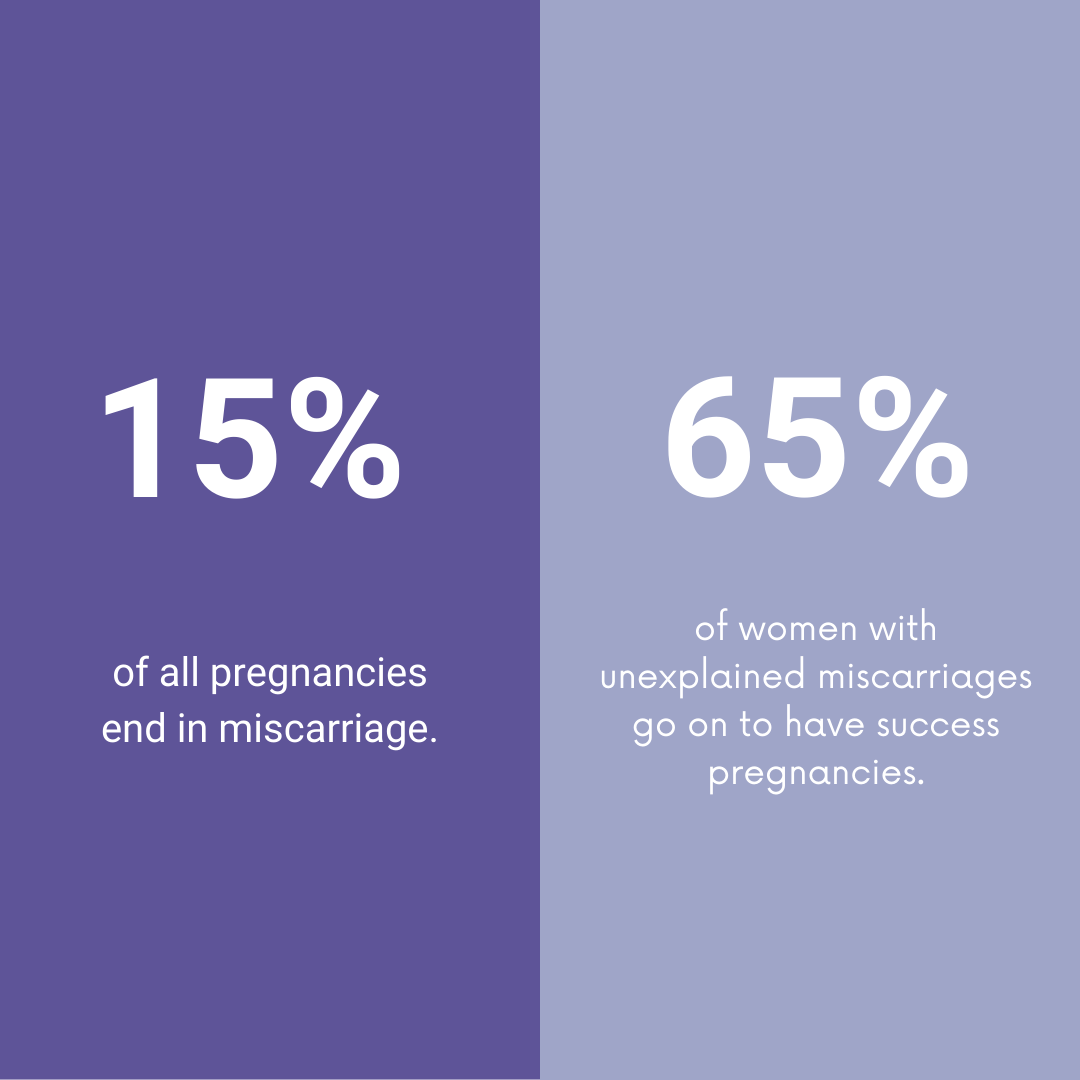Will I Be Able to Have a Baby After Multiple Miscarriages?
- Category: Improving Fertility, Fertility
- Posted On:
- Written By: Palm Beach Fertility Center
Recurrent Miscarriages
The heartache of suffering a miscarriage is immense for couples who want to build a family. While having one miscarriage is traumatic, having back-to-back miscarriages is an agonizing loss. A woman may feel as though she is living her worst nightmare and can’t wake up from it. She may even feel as though she’s letting down her partner or that she’s not a “real woman.”
Recurrent miscarriage is defined as the spontaneous loss of 2 or more consecutive pregnancies.
Even though you may feel lost and alone, know that many other women are facing the same heartache. Know, too, that many women who have suffered recurrent miscarriages have gone on to give birth to healthy babies. There are a variety of medical treatments available to help you successfully carry a baby to term, such as ovulation induction or in vitro fertilization, among others.
The good news is, The American College of Obstetricians and Gynecologists (ACOG) estimates that about 65% of women with unexplained miscarriages go on to have a successful pregnancy.
What Causes a Miscarriage?
About 15% of all pregnancies end in miscarriage. A miscarriage is the loss of a pregnancy before 20 weeks of gestation, although most miscarriages occur in the first 12 weeks. There may be an underlying cause for your miscarriages, which could include an abnormally shaped uterus, uterine fibroids, or uterine scar tissue that hinders fetal growth. Hormonal imbalances of prolactin, thyroid, or progesterone can also cause a miscarriage. There are also illnesses, such as Type 2 diabetes or autoimmune diseases that can increase the risk of miscarriage.
Still, for many women who have miscarried, there are identifiable causes that are entirely treatable. Some of the common causes of recurrent miscarriage include thyroid disorders, undiagnosed diabetes, or lifestyle habits such as drug or alcohol use during pregnancy.
Why Did I Miscarry My Baby?
The first question many women ask after miscarrying is “why?” She wants to know “what happened?” and even “why me?” especially if you think you’ve done everything you could to have a successful pregnancy. In the case of miscarriages that happen very early in the pregnancy, it’s not always easy to determine what went wrong. ACOG estimates that 50 to 75% of repeated miscarriages have no identifiable cause, but there may be clues about what the problem is.
There are diagnostic tests your fertility specialist will perform to diagnose the possible causes of your recurrent miscarriages, such as:
- Karyotype: This test maps your chromosomes to diagnose any genetic defects. The most common cause of miscarriage is there is a problem with either the egg or sperm’s chromosomes during the formation of an embryo. Although specific chromosomal abnormalities are compatible with life, such as Down syndrome, others halt development. Nothing can be done to prevent this type of miscarriage from happening. It is the body’s natural process to protect a woman from what may be an abnormal pregnancy, and most losses are due to embryonic chromosomal abnormalities.
- Hysterosalpingogram: A procedure that evaluates the shape of your uterus by using a special dye and an X-ray.
- Vaginal ultrasound: This scan detects any abnormalities in or around the uterus, ovaries, and fallopian tubes.
- Blood hormone levels: This blood test checks if there is an imbalance in certain hormones such as prolactin, thyroid, or progesterone.
- Endometrial biopsy: This procedure takes a tissue sample of the endometrium to determine if there is an infection that has caused pregnancies to terminate spontaneously.
- Glucose screening: This blood test diagnoses type 2 diabetes. A woman with uncontrolled diabetes is at a higher risk of having a miscarriage.
- And more
Seek Help From Our Fertility Specialist at Palm Beach Fertility Center
Going through multiple miscarriages is traumatic, but if you are experiencing this burden, there is hope. At Palm Beach Fertility Center, we can help evaluate recurrent pregnancy loss and determine a fertility treatment plan so you can successfully carry a baby to term and enjoy motherhood. To increase your odds of success, talk to our fertility specialist to determine the best next steps for you and your partner.
If you have had a miscarriage or more than one, you have fertility treatment options. To request an appointment with our physician at Palm Beach Fertility Center, please call (888) 819-5177 today.
